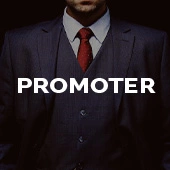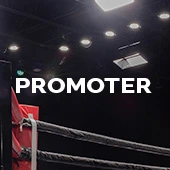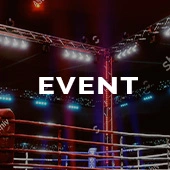This is a full weekend – especially on Saturday, January 31.
That day will feature Teofimo Lopez and Shakur Stevenson headlining a pay-per-view; Bakhram Murtazaliev defending his world title against Josh Kelly; Xander Zayas and Abass Baraou meeting in a unification bout; plus a notable super middleweight bout between Jacob Bank and William Scull.
Here’s what you need to know, starting with our top pick:
Pick it: Teofimo Lopez vs. Shakur Stevenson
When to Watch: Saturday, January 31 at 6 p.m. Eastern Time (11 p.m. GMT)
How to watch: DAZN Pay-Per-View
Why to Watch: The lineal junior welterweight champion, Teofimo Lopez, is defending against a talented lightweight titleholder in Shakur Stevenson.
Lopez, 22-1 (13 KOs), is a two-division champion. The 28-year-old from Brooklyn, New York, is the current king at 140lbs and the former top guy at 135.
Lopez was being groomed for success by promoter Top Rank in the latter part of the 2010s. He won his first lightweight title belt with ease by knocking out Richard Commey in about four minutes in late 2019. That was followed by a big match with Vasiliy Lomachenko in October 2020. Lopez took the first half of the fight, and Lomachenko came on too late to overcome the deficit. Lopez seized the throne via unanimous decision.
His reign didn’t last long. Thirteen months later, in Lopez’s first defense, he suffered a massive upset against George Kambosos Jnr. Lopez was dropped in the first round and lost a split decision. That would be it for “The Takeover” at 135.
Lopez subsequently entered junior welterweight with a sixth-round TKO of the 34-1-1 Pedro Campa and a split decision over contender Sandor Martin. None of this created high expectations for Lopez, but he once again fought up to the moment when he took on Josh Taylor, who was no longer undisputed but still had the WBO belt and lineal recognition. Lopez clearly outpointed Taylor in June 2023 and became the new champ at 140.
Three defenses have followed: decisions over Jamaine Ortiz, Steve Claggett and Arnold Barboza. This fourth defense, against Stevenson, represents Lopez’s most talented opponent since Lomachenko.
Stevenson, 24-0 (11 KOs), is the current WBC lightweight titleholder and previously held a pair of world titles at 130lbs and a title belt at 126. A win over Teofimo Lopez would make him a four-division titleholder and would be his second Ring Magazine championship.
Stevenson, a 28-year-old originally from Newark, New Jersey, took home a silver medal in the 2016 Olympics and soon turned pro with fanfare. In 2019, he widely outpointed the previously unbeaten Joet Gonzalez to capture the vacant WBO featherweight belt, then moved up in weight without defending it.
In late 2021, Stevenson dominated Jamel Herring to take the WBO junior lightweight title. One fight later, he widely outpointed Oscar Valdez to add the WBC belt and vacant Ring championship. Stevenson came in overweight for his next bout against Robson Conceicao, taking the decision but vacating his belts in the process. He then headed up to lightweight.
Stevenson’s stint at 135lbs has seen him try to find the right mix of offense and defense. He is so skilled that he can easily make opponents miss, but he hasn’t always prioritized making them pay afterward. As a result, there have been fights that weren’t as entertaining to watch. Yet he also doesn’t want to take unnecessary punishment while building a fan base.
With that said, Stevenson’s two most recent outings – a TKO of late replacement Josh Padley last February and a clear decision over top contender William Zepeda in July – were much more enjoyable than the two that came before. Stevenson was widely derided after outpointing Edwin De Los Santos to pick up the vacant WBC title, and his first defense against Artem Harutyunyan wasn’t overly aesthetically pleasing either.
It will be interesting to see what style and strategy Stevenson brings after moving up in weight to challenge the skilled Lopez. And it will also be interesting to see what Stevenson decides to do afterward if he picks up the victory, the WBO junior welterweight belt and the lineal championship at 140lbs. There are good fights available for him both in this packed weight class and back down at lightweight.
The undercard includes two additional title fights, plus two other notable bouts.
One title fight will see Carlos Adames, 24-1-1 (18 KOs), back nearly a year after his controversial draw with Hamzah Sheeraz. Adames will defend his WBC belt against Austin “Ammo” Williams, 19-1 (13 KOs), who has won three straight since being stopped by Sheeraz in 2024.
In the other title fight, the vacant WBC featherweight belt is up for grabs after its previous owner, Stephen Fulton, badly missed weight in a junior lightweight title bout against O’Shaquie Foster in December. Competing for the title are WBC interim titleholder Bruce Carrington, 16-0 (9 KOs), and second-ranked Carlos Castro, 30-3 (14 KOs), who hasn’t fought since a debatable split decision loss to Fulton in September 2024.
Also on this show, former lightweight titleholder Keyshawn Davis, 13-0 (9 KOs), is fighting for the first time in a year after coming in way over 135lbs last June, causing his defense against Edwin De Los Santos to be called off. Davis has moved up to 140lbs and will debut in this weight class against Jamaine Ortiz, 20-2-1 (10 KOs). Ortiz’s only losses came on the scorecards against Vasiliy Lomachenko in 2022 and Teofimo Lopez in 2024. He is on a three-fight winning streak.
And in a heavyweight attraction, Jarrell Miller, 26-1-2 (22 KOs), will meet Kingsley Ibeh, 16-2-1 (14 KOs).
More Fights to Watch
Friday, January 30: Bryan Flores vs. Starling Castillo (ProBox TV)
The broadcast begins at 6 p.m. Eastern Time (11 p.m. GMT).
Flores, 27-1-1 (16 KOs), is a 29-year-old from Mexico who lives in Las Vegas. Two fights ago, he lost a split decision to junior welterweight contender Lindolfo Delgado in August 2024. Flores returned this past May and needed just four minutes to dispose of the 18-2-1 Hernan Leandro Carrizo.
Castillo, 20-1-1 (13 KOs), is a 30-year-old from the Dominican Republic. Both of those blemishes came in 2022: a unanimous decision loss to the 10-0 Otar Eranosyan and a draw with the 14-0 Kenny De Leon. Both of those opponents remain undefeated to this day. Castillo has won three decisions in a row – fending off low blows and biting from the 12-0 Esteuri Suero, defeating the 13-1-1 Jesus Saracho and, last August, outpointing the 21-2-1 Shinard Bunch.
Bunch is a common opponent for Flores and Castillo; Flores took a split nod over him in 2023.
In the co-feature, featherweight Sulaiman Segawa, 18-5-1 (7 KOs), will fight for the second time since his debated majority decision loss to Bruce Carrington in September 2024. Segawa spent nearly a year away before returning last September and bouncing back with a good seventh-round TKO of the 20-1 Bryan Acosta, whose only other loss came against Ramon Cardenas. Segawa is 34 years old, is better than his record indicates, and will have the advantage in experience but will be taking on someone who is young, undefeated and hungry.
Segawa’s opponent is Rene Palacios, 18-0-1 (10 KOs), who is taking a big step up in level of opposition. His recent wins have come against opponents with records of 20-10-1, 9-9 and 20-8-2, but his team is confident that the 24-year-old is ready for this challenge..
(Note: BoxingScene and ProBox TV are both owned by Garry Jonas.)
Saturday, January 31: Xander Zayas vs. Abass Baraou (Top Rank Classics)
The broadcast begins at 6:30 p.m. Eastern Time (11:30 p.m. GMT). The Top Rank Classics channel is available online and on smart televisions via The Roku Channel, Tubi and Vizio.
Abass Baraou, 17-1 (9 KOs), is the WBA junior middleweight titleholder. His lone defeat came in 2020, when he dropped a razor-thin split decision to Jack Culcay. Baraou has won eight fights since then, the most notable coming in his last outing in August.
Baraou came in that night as the underdog against highly touted contender Yoenis Tellez, who held a secondary WBA belt while Terence Crawford remained the organization’s primary titleholder at 154lbs. The fight took place in Orlando, Florida, which had regularly hosted the Cuban Tellez. Baraou was not at all intimidated and took the fight to his 10-0 foe, building a commanding lead and dropping Tellez in the 12th round to punctuate his unanimous decision victory.
Baraou has since been upgraded. The 31-year-old from Germany is once again going to hostile territory, traveling to Puerto Rico to face Xander Zayas.
Zayas, 22-0 (13 KOs), is the WBO junior middleweight titleholder at 154lbs. He won the vacant belt in July, when he defeated Jorge Garcia Perez via unanimous decision. Garcia Perez had previously given highly touted junior middleweight contender Charles Conwell his first defeat.
Now Zayas is simultaneously doing a victory lap while taking a unification bout. The 23-year-old hails from Puerto Rico and lives in Florida, and he’s headlining in his homeland while hoping to become the next icon from the boxing-loving island. The show is being held in San Juan at the Coliseo de Puerto Rico, also known as the Coliseo Jose Miguel Agrelot.
The win over Garcia Perez was a nice step up for Zayas, whose biggest wins before then were wide decisions over former title challenger Patrick Teixeira and the 25-2 Damian Sosa, and a ninth-round TKO of the 20-0 Slawa Spomer. Zayas is still young, yet he’s been fighting professionally since he was 17 and should no longer be competing against the second and third tiers of his weight class.
Facing Baraou, a fellow titleholder, is a good way to go into deeper waters without necessarily going in over his head too soon. Depending on if he wins on Saturday, and how he looks, Zayas and his team could then figure out what the logical next step would be.
The winner will leave this unification bout with two world titles and an eye on the other men with belts – Sebastian Fundora (WBC) is expected to face Keith Thurman next, while Bakhram Murtazaliev (IBF) is due to defend against Josh Kelly on the same day as Baraou vs. Zayas. There’s also the WBA’s secondary titleholder, Jaron “Boots” Ennis, who may see this as a good option if a deal for a highly anticipated bout with Vergil Ortiz Jnr can’t be made.
For Zayas, the lack of a television contract right now for his promoter, Top Rank, could come into play. Either they would need to take on notable fighters who are with other companies that have TV or streaming deals, or we may see Zayas ply his trade in Puerto Rico and Florida against lesser foes, relying on ticket sales to make money while continuing to build him into an attraction.
The WBO’s junior middleweight rankings list Kelly at No. 1, followed by Brandon Adams, Keith Thurman, Rashidi Ellis, Serhii Bohachuk, Giovani Santillan, Adrian Marcelo Sasso, Israil Madrimov, Callum Walsh, Garcia Perez, Julian Vogel, Nikita Tszyu, Milan Prat, Marco Ezequiel Garcia Ovejero and Yoenis Tellez.
Saturday, January 31: Bakhram Murtazaliev vs. Josh Kelly (DAZN)
The broadcast begins at 2 p.m. Eastern Time (7 p.m. GMT).
Bakhram Murtazaliev, 23-0 (17 KOs), is the IBF junior middleweight titleholder. He had a fantastic 2024 that was seemingly squandered in 2025. He’s hoping to get his career back in gear in 2026.
Murtazaliev is a 33-year-old from Russia who lives near Los Angeles, California. In April 2024, he traveled to Germany and knocked out Jack Culcay in the 11th round to capture the vacant IBF belt. That made him a desirable opponent for Tim Tszyu, who was returning from losing his world title to Sebastian Fundora and wanted to jump straight back in.
Murtazaliev took Tszyu into the deep end and wouldn’t let him float. In the main event of an October 2024 show on Amazon’s Prime Video, Murtazaliev dropped Tszyu four times and scored a stunning third-round TKO.
Murtazaliev hasn’t been seen since.
Yes, he was recovering from a hand injury suffered in sparring before the Tszyu bout. But he was back in the gym as of last January. Whether Murtazaliev is the boogeyman at 154lbs, or if his inactivity is the product of being with a promoter (Main Events) that doesn’t have a network contract, he didn’t fight at all last year. It didn’t help that Erickson Lubin had been in line for a shot at Murtazaliev but ultimately pulled out of the purse bid process in order to face Vergil Ortiz Jnr instead.
Josh Kelly, 17-1-1 (9 KOs), is a 31-year-old junior middleweight from Sunderland, England, about half an hour from this show at Utilita Arena Newcastle in Newcastle, England. He is ranked third by the IBF – the two spots above him are vacant – and first by the WBO.
Kelly’s amateur career peaked with competing in the 2016 Olympics, where he won one fight in the welterweight tournament before losing to the eventual gold medalist, Daniyar Yeleussinov. Kelly turned pro in 2017 and was moved quickly – perhaps too quickly – with optimism about his amateur pedigree clouding a need for further seasoning. That need showed up in 2019, when Kelly was held to a draw against Ray Robinson, and again in early 2021, when Kelly was stopped in the sixth round by David Avanesyan.
But moving up to junior middleweight has revitalized Kelly, who is on a seven-fight winning streak (one bout against a late replacement opponent took place at middleweight). He gave Troy Williamson his first loss in 2022. He did the same to that aforementioned late replacement, Ishmael Davis, in 2024. Kelly fought just once last year, and he only got in two minutes of action before putting away the 24-1 Flavius Biea.
The undercard includes Elif Nur Turhan, 12-0 (8 KOs), making the first defense of her IBF lightweight title after seizing it in December with a stellar fifth-round of Beatriz Ferreira – capping a campaign that earned Nur Turhan BoxingScene’s Women’s Fighter of the Year award. Nur Turhan will face Taylah Gentzen, 8-1 (3 KOs), who has won two straight since a split decision loss to the 4-0 Shauna Browne in January 2025.
Also on this show: Josh Padley, 17-1 (5 KOs), is back for the third time since getting stopped by Shakur Stevenson last February. He will take on Jaouad Belmehdi, 23-2-3 (11 KOs).
Saturday, January 31: Jacob Bank vs. William Scull (DAZN)
The broadcast begins at 2 p.m. Eastern Time (7 p.m. GMT).
Jacob Bank and William Scull are two ranked super middleweights vying for a better position in an in-flux division.
Bank, 17-0 (9 KOs), is a 24-year-old from Kolding, Denmark, where he’ll headline at the Sydbank Arena. He is ranked fourth by the WBO and 12th by the WBC. Bank’s recent victories include wins over two undefeated but unheralded foes: a fourth-round TKO of the 13-0 Ibo Diallo and a wide decision against the 17-0 Damian Biacho. In his last appearance, Bank stopped former 168lbs titleholder Tyron Zeuge in the fifth round in September.
Scull, 23-1 (9 KOs), is a 33-year-old Cuban living in Germany. He is ranked 10th by the IBF, a steep drop for that organization’s former super middleweight titleholder. Scull won the vacant belt in 2024 after Saul “Canelo” Alvarez dropped it, and then he lost it back to Canelo in a drearily defensive performance in May 2025.
The undercard includes another Danish fighter – lineal bantamweight champion Dina Thorslund, 23-0 (9 KOs) – who is returning for the first time since October 2024. Thorslund had stepped away in 2025 and vacated her two sanctioning body belts after announcing her pregnancy; sadly Thorslund suffered a miscarriage. She will face Almudena Alvarez, 7-3 (2 KOs), for the WBC’s interim featherweight belt; the WBC’s primary titleholder is Tiara Brown.
Sunday, February 1: Jose Valenzuela vs. Diego Torres (Paramount+)
The broadcast begins at 6 p.m. Eastern Time (11 p.m. GMT).
Jose Valenzuela, 14-3 (9 KOs), is a former junior welterweight titleholder who upset Isaac “Pitbull” Cruz for the WBA belt in August 2024 but lost it in his first defense, a wide defeat to Gary Antuanne Russell last March. This is the first fight back for Valenzuela, a 26-year-old from Mexico living in Washington state, and he’s returning to lightweight for this bout. He is ranked eighth at 135lbs by the WBA.
Torres, 22-1 (19 KOs), is a 28-year-old from Mexico. He was stopped in the eighth round by Raymond Muratalla in late 2023; Muratalla has since become a lightweight titleholder. Torres, meanwhile, has notched four consecutive victories, most recently taking out the 12-3-2 Ridwan Oyekola in the fifth round in August. Torres is ranked 13th at lightweight by the IBF.
On the undercard, Serhii Bohachuk, 26-3 (24 KOs), is back for the first time since his disappointing rematch loss to Brandon Adams in September. Bohachuk, a junior middleweight contender, will compete at middleweight given that Zuffa Boxing is limiting the number of weight classes it features.
Bohachuk will face Radzhab Butaev, 16-1 (12 KOs), a former welterweight contender who’s been incredibly inactive since losing a split decision to Eimantas Stanionis in April 2022. Butaev fought once in November 2023, putting away the 11-1 Fazliddin Gaibnazarov after three rounds, and then was gone again until November 2025, shaking off rust over the course of eight rounds with a 3-12-4 foe.
Also on this show is a bout between former light heavyweight champion Oleksandr Gvozdyk, 21-2 (17 KOs), and Radivoje Kalajdzic, 29-3 (21 KOs). Coincidentally, Gvozdyk was David Benavidez’s first fight at light heavyweight while Kalajdzic was the same for David Morrell before the two Davids faced off. Kalajdzic hasn’t fought since that decision loss in August 2024; Gvozdyk won a third-round knockout last April against a 9-7-3 opponent.
David Greisman, who has covered boxing since 2004, is on Twitter @FightingWords2. David’s book, “Fighting Words: The Heart and Heartbreak of Boxing,” is available on Amazon.



































